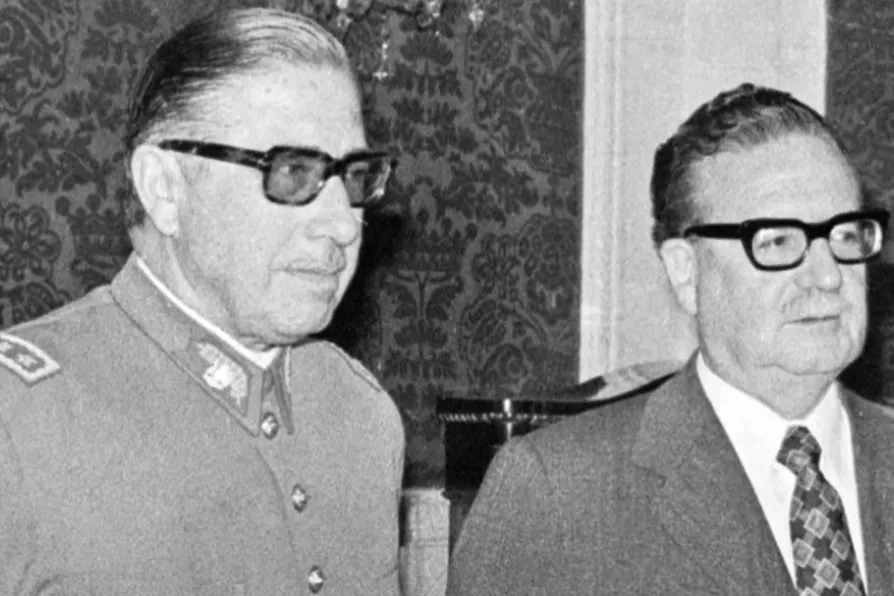The selection, analysis and interpretation of historical ‘facts’ always takes place within a paradigm, a model of how the world works. That’s why history is always a battleground, declares the Marx Memorial Library

 Augusto Pinochet (left) and President Salvador Allende (right), attend a ceremony naming Pinochet as commander in chief of the army in 1973
Augusto Pinochet (left) and President Salvador Allende (right), attend a ceremony naming Pinochet as commander in chief of the army in 1973
On the morning of September 11 1973, British-made Hawker Hunter jets bombed La Moneda presidential palace in Santiago, Chile. Hours later, Chile’s elected head of state President Salvador Allende was dead.
Soldiers raided working-class districts across the country rounding up left-wing activists. Around 40,000 were incarcerated in Chile’s National Stadium, awaiting interrogation. Many faced torture and imprisonment, others execution. Hundreds of other militants simply “disappeared.”
Allende’s government of Popular Unity was replaced by a military junta headed by General Augusto Pinochet.
The experience of Popular Unity and its dramatic and bloody end is dealt with in a new book from Praxis Press, 1000 Days of Revolution. This book contains nine chapters, each one written by a prominent Chilean communist as part of their party’s attempt to self-critically analyse the weaknesses of Popular Unity.
These articles were originally published in the Prague-based World Marxist Review and subsequently published as a book in 1978.
The Chilean experience was a sustained attempt to advance to socialism through a non-armed strategy based on a constitutionally elected government.
Popular Unity’s failure has often been taken by its leftist critics as definitive proof of the impossibility of any such path.

BEN CHACKO welcomes a masterful analysis that puts class struggle back at the heart of our understanding of China’s revolution

Communist Party presidential candidate JEANNETTE JARA challenges the Chilean left to stop talking only among comrades and reach out to angry voters abandoned by politics in the race against the far right this November

RON JACOBS welcomes an investigation of the murders of US leftist activists that tells the story of a solidarity movement in Chile











